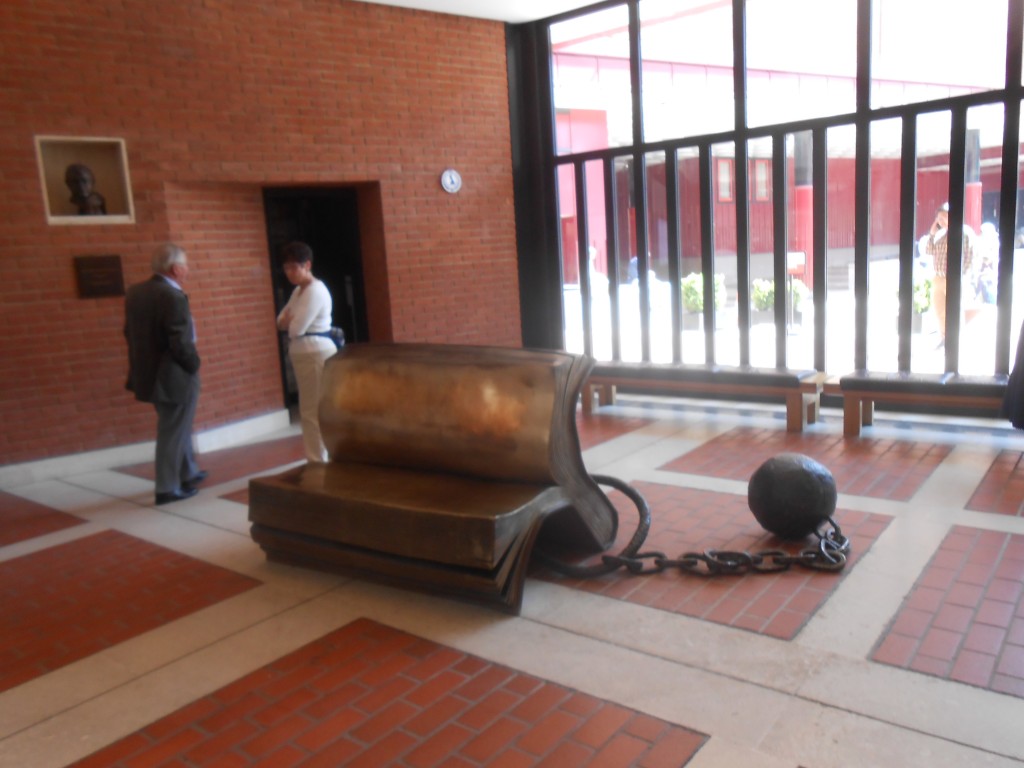The City and the City, by China Miéville, is an interesting novel, a straight-ish police procedural set in an unreal city (actually two cities) existing in our world, ostensibly somewhere in Eastern Europe. The plot is that of a policeman investigating the death of a young woman who was murdered in one city, but whose body was dumped in the other. In the course of the investigation, he must deal with and overcome political intrigue and obstruction, internal, intercity, and international. Nothing necessarily new there.
What makes the novel intriguing is that the two cities, Beszel and Ul Quoma, occupy the same physical space and the inhabitants of each are trained, from childhood, to “unsee” anything in the other city. They can be walking down the same street, side by side, and see only the buildings and people of their own city. If they willfully see anything of the other city, they are “in breach,” and are removed and dealt with by a third, shadowy entity called Breach, whose sole authority is to regulate breaches between the cities. (All other crimes are dealt with by the city in which they occur.) There is, of course, an official border at the town hall through which one can pass through customs to travel from one city to the other but, once there, one must “unsee” anything in the city they have just left. Tourists and refugees and others from the rest of our world can and do visit or emigrate to either of the two cities. The dead girl is an American who was working at an archeological dig in Ul Quoma, who got involved in local politics, and who was researching the myth of a third, unseen city, Orsiny, between the other two. Ultimately, the protagonist, a Beszel policeman, must work with his Ul Qoma counterpart to solve the mystery of her death. Without giving any spoilers, the resolution of the novel takes one into somewhat hazy fantasy territory, genre-wise.
The idea of two peoples occupying the same space and refusing to see each other creates opportunity for metaphor at a very deep level. One thinks of cities like East and West Berlin (in their day), Jerusalem, Belfast–or even cities in the U.S. where one group of citizens try not to see the pain of the other; where those who are lucky enough to have a job and a home studiously “unsee” the homeless. The potential for exploring social issues symbolically is tremendous. Unfortunately, in this respect, I found Miéville’s book a bit disappointing.
I had hopes. Miéville does an excellent job of creating the world of the two cities and how it connects with the rest of the world. Likewise, the voice of his protagonist presents a satisfactory example of his type. But, the detective story’s twists follow more or less the route that many police procedurals take without the depth I was expectantly awaiting.
I do acknowledge that a writer is entitled to write the story he wants to write, not the story I want him to write. And one could justifiably retort: “If you want to write that story, write it yourself.” But even when a book is adequately written and sufficiently interesting, it’s sometimes frustrating to see a story’s potential so clearly in its set-up–how large the theme and the weight of the book could have been if the author had desired to go there–and have him not go there.

